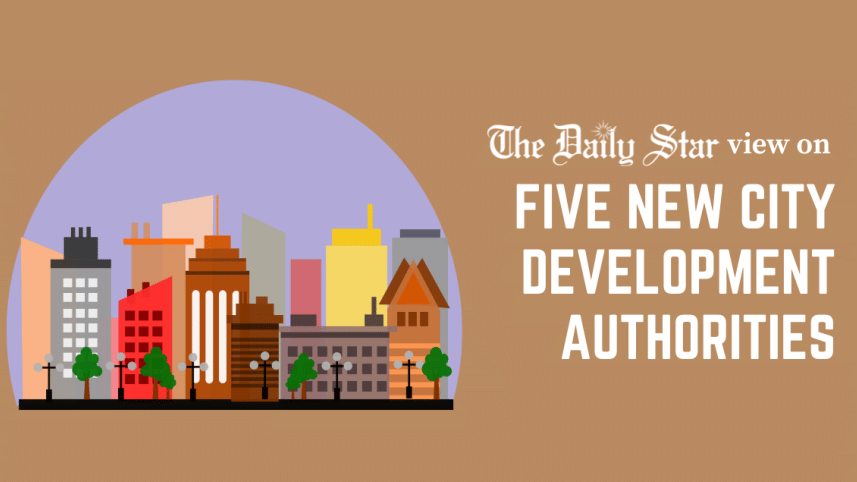Bangladesh needs better urban planning

Last week, the High Court issued a contempt of court rule against five government officials for not complying with its directive to evict illegal structures from Cox's Bazar sea beach – a directive issued 11 years ago. Alongside the Cox's Bazar deputy commissioner, one of the officials against whom the rule was issued included a former chairman of the Cox's Bazar Development Authority (DA), which was set up in 2016 to transform Cox's Bazar into a modern and planned city and which, six years down the line, has yet to come up with any master plan for doing so.
In fact, according to locals, the only thing the Cox's Bazar DA has done in this long period is construct its own building, put up street lights, preserve three water bodies and build four sculptures in public spaces. However, the Cox's Bazar DA is not the only one of its kind to fail in upholding its wider mandate of urban planning. The Gazipur Development Authority, for example, has not even managed to recruit any manpower or appoint a chairman, even though it technically began operations two years ago. The situation is the same with the Khulna Development Authority. In Dhaka, time and again, we have seen buildings being constructed without permission from Rajuk or, worse, Rajuk officials themselves getting mired in allegations of corruption.
Yet, despite the unfit and often superfluous nature of existing urban development authorities – and accusations that they are not being able to systematically contribute to the planned development of the areas under their purview – the government is reportedly going ahead with a decision to establish five more development authorities in Sylhet, Payra, Rangpur, Barishal and Mymensingh.
While we understand the need to have bodies in charge of planning the development of cities as densely populated as ours, we are confused as to why these bodies are being set up without much thought being given to making them operational or effective. The lack of manpower, and of cooperation from other government departments, have been cited as main reasons blocking certain development authorities from becoming functional. In that case, why are these issues not being dealt with first, instead of wasting precious resources on setting up more bodies that run the risk of being only for show?
We cannot stress enough on the role that an effective development authority can play in creating a liveable city. The ongoing discussions around the new Detailed Area Plan (DAP) for Dhaka show just how important such initiatives are for the long-term welfare of city-dwellers. It is not only about economic development, but about ensuring a certain quality of life for the inhabitants of a city encompassing economy, public infrastructure, environment, social justice, and public health. We need development authorities that can properly address all these concerns, not bodies that end up being ornamental at best, and corrupt and incompetent at worst.



 For all latest news, follow The Daily Star's Google News channel.
For all latest news, follow The Daily Star's Google News channel. 
Comments